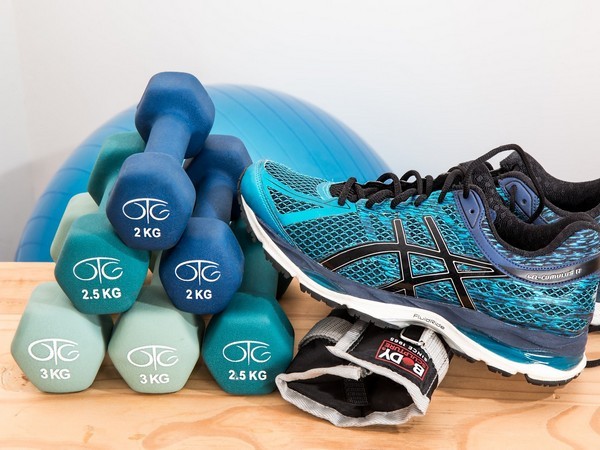Research finds physical activity needed more as you grow older
Everyone knows that physical activity is very important to have a healthy body. It not only keeps your muscle and joints strong but also fights against certain diseases.

Massachusetts [US]: Everyone knows that physical activity is very important to have a healthy body. It not only keeps your muscle and joints strong but also fights against certain diseases.
However, as we age, we tend to lessen our physical activity and rest more, which, according to research, is wrong for our health.
The findings of this study have been published in the 'PNAS Journal'.
A team of evolutionary biologists and biomedical researchers from Harvard were taking a run at it (sometimes literally). The work laid out evolutionary and biomedical evidence showing that humans, who evolved to live many decades after they stopped reproducing, also evolved to be relatively active in their later years.
The researchers said that physical activity later in life shifted energy away from processes that compromised health and toward mechanisms in the body that extended it. They hypothesized that humans evolved to remain physically active as they age -- and in doing so allocated energy to physiological processes that slowed the body's gradual deterioration over the years. This guarded against chronic illnesses such as cardiovascular disease, type 2 diabetes, and even some cancers.
Also Read | Health: 25 minutes of physical activity can reduce death risk from long sitting
"It's a widespread idea in Western societies that as we get older, it's normal to slow down, do less, and retire," said Harvard evolutionary biologist Daniel E. Lieberman, the paper's lead author.
"Our message is the reverse: As we get older, it becomes even more important to stay physically active," he added
The research team, which included Aaron Baggish and I-Min Lee from Harvard Medical School, believed the paper is the first detailed evolutionary explanation for why lack of physical activity as humans aged increased disease risk and reduced longevity.
Baggish, 47, who also served as team cardiologist for the New England Patriots and U.S. Soccer, and Lieberman, 57, are long-time running buddies and often discussed the ideas that went into the paper during 5-to-10-mile morning runs.
The study used humans' ape cousins as a jumping-off point. The researchers pointed out that apes, which usually live for only about 35 to 40 years in the wild and rarely survived past menopause, are considerably less active than most humans, suggesting that there was a selection in human evolution not just to live longer but also to be more physically active.
Also Read | Research: Daily physical activity associated with lower risk of Covid 19 infection
"We evolved basically from couch potatoes," said Lieberman, who has twice observed wild chimpanzees in Tanzania and been surprised by how much of their day is spent "sitting on their butts, digesting."
This is especially jarring when contrasted against contemporary hunter-gatherers, who on average spend about 135 minutes of moderate to vigorous physical activity a day. That level of movement -- about six to ten times more than average Americans -- may be one of the keys to why hunter-gatherers who survive childhood tended to live about seven decades, approximately 20 years past the age at which humans generally stopped having children. Fossil evidence indicated that these extended life spans were common 40,000 years ago, contrary to the belief that human life spans until recently were short.
The team emphasized that the key health benefit of physical activity is to extend the human health span, which is defined as the years of life spent in good health.
Researchers examined two pathways by which lifelong physical activity reallocated energy to improve health. The first involved dealing with excess energy away from potentially harmful mechanisms, like excess fat storage. The team also identified how physical activity allocated energy to repair and maintenance processes. The paper showed that besides burning calories, physical activity is physiologically stressful, causing damage to the body at the molecular, cellular, and tissue levels. The body's response to this damage, however, is essential to build back stronger.(ANI)
 Dynamite News
Dynamite News 